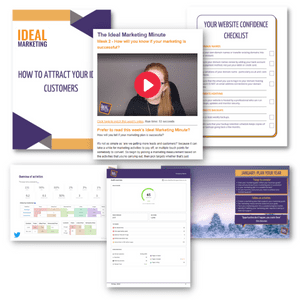Do you know who your competitors are? This may seem like a silly question; after all, if you are a high street estate agency, clearly your competitors are the other estate agents located on your town’s high street.
However, while this is true, for most businesses local and visible competitors are only part of the story. Read on to find out why knowing and learning from your rivals (and why there could be more of them than you think) is crucial to the success of your business.
Why you should know who your competitors are
Knowing who your competitors are and then using that knowledge to your advantage is the key to a marketing strategy that will give you an edge over all your rivals. After all, if you haven’t spent time noticing and researching what your competitors are doing well and getting wrong, how will you be able to differentiate from them and improve your own offering?
Some might argue that if your product or service is great and you know how to run your business, you shouldn’t have to worry about what other companies are doing. While it’s certainly true that competitor research is not the solution to improving results for a poor product or service, a good offering can always be enhanced with benchmarking using competitor research, particularly if like most businesses, you are operating in a crowded marketplace.
Remember, competitor research is not about imitating what others are doing; it’s about building on their strengths and learning from their weaknesses. And of course, what you learn will highlight your own unique strengths and weaknesses too.
Types of business competitors
Your competitors can be divided into two distinct main categories – direct and indirect.
Direct competitors
These are your obvious rivals who are offering the same service as you, for the same demographic. For example, if you are a hairdresser specialising in colour treatments, your direct competition is other colourists nearby. Equally, if you offer live yoga classes via Zoom, your direct competition is other fitness instructors who offer a similar service in the same time zone.
Indirect competitors
This kind of competitor can be categorised as any business whose service can be defined as the same category but who is providing a different service. Taking the hairdressing example above, an indirect competitor to a high street salon could be a mobile hairdresser who visits clients in their own homes.
However, in the digital world, where getting noticed online is all-important, your indirect competitors can be defined as anyone who is competing with you for search engine rankings. In short, this means any other business who is using the same SEO keywords as you to get noticed and clicked as far up the search engine listings as possible. It’s important to remember that these businesses may not be in the same area as you, and they may not be selling the same product.
How to find your direct competitors
Because your most obvious direct competitors are often so visible, it’s all too easy to omit casting the net wider to find out who else is selling a product or service that directly competes with yours. To cover all bases, do the following:
Research the market
Market research can involve formal focus groups, customer surveys, interviews and product testing. However, when building a picture of what your potential customers are thinking about and why, it’s just as important to ask them questions whenever you get the chance.
Never miss an opportunity to ask clients how they found you and which other companies were involved in the decision-making process that led them to you. Indeed, you don’t even need to wait until the customer has chosen you – asking them who else they are considering when they are still in the decision-making process can provide valuable insights into their needs.
Do a social media deep dive
Social media can be a treasure trove when it comes to finding out what your target audience is buying and why. This is particularly true if your target audience includes millennials, as research shows that 50% of this demographic place high importance on recommendations from friends and family when it comes to their buying decisions. As well as checking out conversations on apps like Facebook, Instagram and Twitter, look at conversations on forums such as Reddit and Quora to find out more about what people are looking for advice and recommendations on.
How to identify indirect competitors
Finding out who is competing with you indirectly is crucial in order to feature in the buyer’s journey as they go online to research the product or service they are looking for. The steps you need to take are as follows:
Do keyword research
What words or phrases are people typing into search engines when they are looking for a product like yours? The companies who also rely on these keywords to get seen online are your indirect competitors regardless of size or location.
Unsurprisingly, this means that it can be difficult for small and medium-sized businesses to compete for the most popular terms. Not only that, the formerly popular practice of ‘keyword stuffing’ designed to raise you through the Google rankings is now penalised by Google’s algorithms.
That said, there is still plenty you can do as a small or medium sized business to improve your online presence. You can conduct keyword research yourself using SEO software and then use your findings to build a content plan. However, this is an area where it can be well worth using an SEO specialist to conduct SEO analysis and come up with a results-focused strategy for you.
Take a look at paid advertising
You can benefit from online advertising without even using it. By looking at your business’s keywords in Google Ads, you can see which businesses are paying for advertising based on those keywords.
Competitor analysis for a competitive edge
At the Ideal Marketing Company, we use the latest developments in digital marketing to help small and medium-sized businesses flourish using strategic competitor analysis. Sign up to our newsletter to stay up to date on our latest insights.

Louise is an experienced and versatile copywriter whose passion is bringing any subject to life through the written word. She thrives on using her imaginative approach to identify and implement exciting PR opportunities for clients. A career spent coming up with creative content for tight deadlines in consumer magazine journalism and PR means Louise doesn’t know the meaning of the term ‘writer’s block!’







